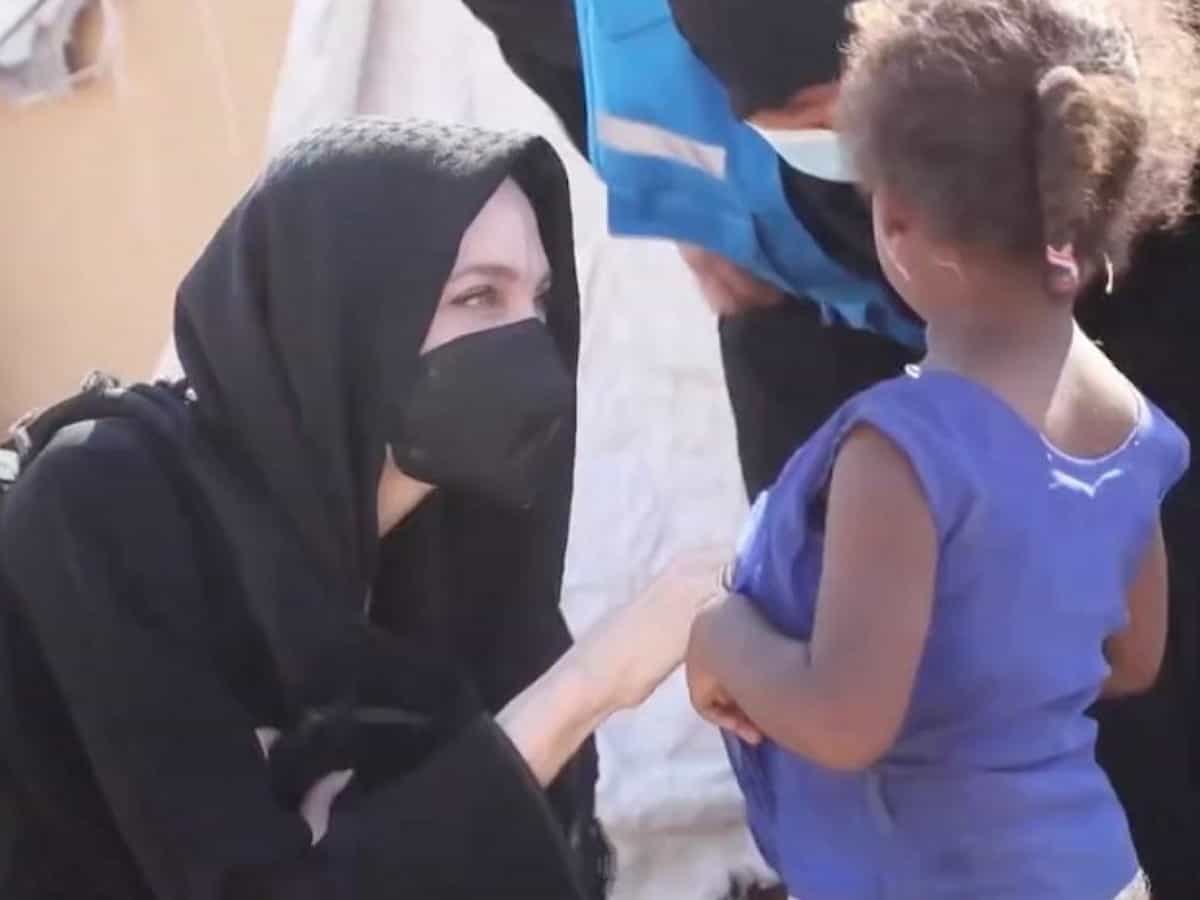
Hollywood actress and a special envoy for the United Nations High Commissioner for Refugees (UNHCR), Angelina Jolie on Wednesday has kicked off the United Nations (UN) effort to raise about $4.3 billion for war-torn Yemen, which aims to reach 17.4 million people needing food handouts as funding dries up.
Angelina Jolie at a virtual donor meeting for Yemen said that the situation in Yemen is heartbreaking and outrageous.
According to the National News, Jolie said aid work in Yemen was drastically underfunded amid a conflict that has gone on for so many years without a political solution.
“You have an opportunity as governments to address this desperate human emergency and to seek an urgent end to the conflict,” Jolie told the online gathering of aid chiefs and humanitarians.
The donor meeting represents an opportunity to demonstrate that the world has not forgotten Yemen, even as other crises are demanding global attention.
More than 17 million people in Yemen need food aid, and that number could rise to 19 million in the second half of the year, the UN reported.
Jolie visited Yemen on March 6 for a three-day visit. She met both internally displaced Yemenis as well as refugees in the north and south of the country.
Jolie met displaced people, Yemeni families, and women. As per reports, she burst into tears when she saw the living conditions of the women and children who had been forced to live there.
She visited a makeshift school. It was made up of five small dark rooms, the children were sitting on the floor, and they hadn’t eaten, nor had the teacher. “They had nothing: no food, no pens, no desks, no schoolbooks, no salary for the teacher, 13-year-olds were sitting next to 3-year-olds, striving to learn to read and write and hope for a future that they may never see,” Jolie added.
Yemen, the poorest country in the Arabian Peninsula, has witnessed a conflict since 2014 between forces loyal to the internationally recognized government and Houthi rebels. The conflict escalated with the intervention of Saudi Arabia at the head of a military coalition in March 2015 to halt the progress of the Houthis after their control of the capital, Sanaa.
Until the end of 2021, the war claimed the lives of 377,000 people and cost Yemen’s economy 126 billion dollars in losses, and most of the population, which numbered about 30 million people, became dependent on aid, in one of the worst humanitarian crises in the world, according to the United Nations.



